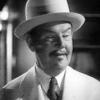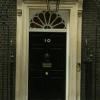
James Bond vs. Capitalism
#1

Posted 09 November 2012 - 05:15 AM
On how greed wasn’t good for Scaramanga or his fellow Roger Moore era Bond villains.
They say that reviews say more about the author of the review than about the subject of the review. Commenting on A VIEW TO A KILL in the book Bond and Beyond: The Political Career of a Popular Hero, co-author Janet Woolacott, as if setting out to prove the above axiom true, remarks that “May Day’s death, to put it bluntly, expresses the pious hope that both the women’s and black liberation movements might take themselves off somewhere into the California desert and blow themselves up.”. The logical fallacy is obvious: Ms Woolacott sees character of a particular gender / race / class / culture in a film, and assumes that that character is intended to be representative of their entire gender / race / class / culture. A film isn’t just a film, it’s a social construct! You can’t argue with that kind of logic and you could never make her see otherwise. That’s her world view, the miserable prism through which she sees things and is a prisoner of (and wants us to be prisoners of too).
I too have views on things, and no doubt my reviews say things about me. Terrible, unspeakable things. Capitalism is one of my most beloved of all -isms, right behind individualism and just before ageism (Damn old people! Why don’t they go back to when they came from?). Naturally, I’m therefore less keen on those -ism on the other end of the -ism scale, namely social, commun and collectiv. So just as Ms. Woolacott can take a scene in which a character who happens to be black woman sacrifices her life to save the population of Silicon Valley and interpret from it a commentary against feminism and racial equality, do I see a red under every bed? Evidently yes, if my take on THE MAN WITH THE GOLDEN GUN as an attack on, or at least an examination of capitalism, is anything to go by...
Greetings fellow Bond fans,
“Karl Stromberg? But he’s one of the richest men in the world!” Q exclaims in THE SPY WHO LOVED ME, aghast at the very suggestion that a shipping tycoon might have anything to do with the submarine hijackings. “One of the principle capitalist exploiters of the west” Anya corrects, as if reciting her communist dogma word for word. Of course, Q’s statement is merely the screenwriters’ inelegant way of conveying information to the viewer (how can we get across that Stromberg is one of the richest men in the world? I know, have Q say “he’s one of the richest men in the world”), but his naivety is touching.
“Max Zorin? Impossible! He’s a leading French industrialist!” The Minister of Defense scoffs eight years later in A VIEW TO A KILL, having clearly learnt nothing from THE SPY WHO LOVED ME, when Bond suggests that Zorin himself might be connected to the microchip with “Zorin” written on it. Of course, being an industrialist only makes Zorin probably the villain. He’s also, according to the Minister, a “staunch Anti-Communist”. Okay, now we know we’ve got our man!
Now, I concede that a resource poor poverty-row Bond villain two months behind on his Bath-O-Sub payments probably wouldn’t make for much of an adversary (though query wherever that wouldn’t give him motivation to do that which Bond villains are apt to do. Think Le Chiffre in Casino Royale, a villain acting not from a position of strength, but under pressure with everything closing in on him), but as the Bond series struggled with engaging, memorable villain in the post SMERSH/SPECTRE 70s and 80s (the two -angas Kan and Scaram, who are magnificent, aside. But who really remembers FOR YOUR EYES ONLY’s Kristatos, or OCTOPUSSY’s Kamal Khan?), electing not to get into legal tangles with Kevin McClory over SPECTRE, and deciding to depict the Soviet Union as something between occasional allies and benign, smiling, friendly competition instead of an “evil empire”, it’s interesting that they moved toward this type of villain: Greedy billionaire not content with their billions, but who instead want trillions. Megalomaniacs for whom it’s not enough to merely rule the world when one can instead be the only person on it. Stromberg and Drax, wealthy industrialist capitalists who enjoy their wealth and their paintings and their classical music (though query how capitalistic wiping out most of human civilization actually is. Good for the market share I suppose (100%! Shareholders happy), but not as good for overall sales (0! Shareholders dead)), and Zorin, who has monopolistic dreams of making a (view to a) killing.
But the James Bond series’ most full-on examination of free-market laissez-faire capitalism versus government intervention is undoubtedly THE MAN WITH THE GOLDEN GUN. Here we have Scaramanga, the ultimate free market entrepreneur, the contract killer who “charges a million a shot”, painted as the villain, vs. James Bond, the government operative who “work(s) for peanuts, a hearty well done from her Majesty the Queen and a pittance of a pension” (nobility in poverty and all that) painted as the hero. “Apart from that we are the same”, Scaramanga suggests. Bond is disgusted by the comparison, showing that one-note palpable disgust that Roger Moore always shows for the villains once the façade has been dropped, but can come back only with that “when I kill, it is on the specific orders of my Government”. Private sector assassin: bad, public sector assassin: good? Bond adds that “those I kill are themselves killers”, as if he has a moral creed of grand ideals to justify his killings while Scaramanga is just in it for the money. Not sure who Bond is trying to convince here, Scaramanga or himself, but Scaramanga calls him out on his bull, um, dust: “You get as much pleasure out of killing as I do, so why don't you admit it?”. Bond admits that killing Scaramanga would be a pleasure. Go back to the beginning of the film, where Bond is adamant that Scaramanga was behind the assassination of 002 Bill Fairbanks (Scaramanga/capitalism kills Fair Banks? Discuss), despite Moneypenny pointing out that “officially that was never confirmed”. He wanted to kill him even then.
Though the script does of course paint Scaramanga/capitalist as the bad guy and Bond/government as the good guy (this is a James Bond film, after all), it’s to the films credit that it does at least give Scaramanga’s side a fair hearing. When showing off his island to Bond, note Scaramanga’s pride that “we’re entirely self-supporting” [see note 1]. Scarmanaga also already has his flying car, while Q, in between his constant bickering with the dull, visionless M who thinks such things impossible, admits that they (the government) are “still working on one”. Score 1 for free market innovation.
But if Scaramanga is the capitalist and Bond is the government, then Nick Nack, Scaramanga’s valet, is the working man. The little guy. The oppressed. Note that the very first words of the film are of Scaramanga giving Nick Nack an order: “Nick Nack! Tabasco!”, “Right away, Monsieur Scaramanga!”. “If you kill him, all this will be mine” Nick Nack says to Scaramanga’s would-be assassins, harbouring dreams of rising from the shackles of his capitalist oppressor and taking what’s rightfully his. Workers of World Unite! Or should that be Worker of the World Unite? Whereas other Bond villains have armies of jumpsuit-clad punch-clockers on the payroll, Scaramanga is one of those rare kind of capitalists (i.e. the kind you mostly see only in movies) whose breed of capitalism doesn’t even have the virtue of at least providing mass employment. He has two guys: the mute custodian Kra, and Nick Nack, who “does everything else”. Note that Nick Nack was also seen eating / getting paid in peanuts earlier. Exploited much? Nick Nack is (literally and well as symbolically) the working man, the little guy.
“If you kill him, all this will be mine”. Don’t count on it, Paddy Whack. While Scaramanga may be the villain of this piece, once the film has vanquished him, it finds itself having to take its allegory to its natural conclusion, and thus we see government agents Bond and Mary Goodnight inadvertently destroying the power plant and the island, for everything the government touches turns to ruin (the writing of the Mary Goodnight character and her ineptitude finally explained - it’s not that she’s a “blonde bimbo”, it’s that she’s from the government and she's here to yelp). Say what you like about Scaramanga and the other Roger Moore Bond villains, particularly those fortunate enough to be villains in the films where Ken Adam was the production designer (GOLDEN GUN wasn’t one of his, admittedly), but at least they built things, rather impressive things, whatever their motives. The Moore era capitalist Bond villains build solar power plants, super tankers (though apparently the Soviet tanker SS Karl Marx is larger) and space stations, whereas all Bond and the British government know how to do is destroy things, blow things up, which they do all in the name of persevering the status-quo, the very status-quo, incidentally, that lead to the energy crisis in the first place, and will ensure its continuation. [see note 2].
So Nick Nick is now out of a job, penniless and destitute, and proof that all government intervention is good for is producing more welfare cases. All the welfare state achieves is the continuation of the welfare state, the status-quo. It didn’t solve the energy crisis (sure they got the solex agitator, but with Gibson dead, who really thinks the government is going to do anything useful with it?), and Nick Nack has learnt the hard way that while you may have nothing to lose but your chains, you also have nothing to gain but new ones. In revolution one merely overthrows one tyranny for another. Realizing that he has been had, and that he has in fact helped cut off the hand that fed him better than he’ll be ever fed again, Nick Nack turns on Bond. But of course, he’s no match for the government. Instead of carrying Scaramanga’s suitcases, he’s now shoved into one. And he thought he was oppressed before!
As the Roger Moore era comes to a close with the end of A VIEW TO A KILL, General Gogol appropriately awards Bond the “Order of Lenin”. He’d more than earned it.
Thanks for reading.
[1] - From as far back as Fleming’s Dr No and into many of the films, non-SMERSH/SPECTRE Bond heavies have tended to be, aside from very personally wealthy, very isolated, private and hard-to-reach individuals (not to mention very self-sufficient), who have elected to sever ties from society, and retreat to personal private islands and hideaway fortresses, free (or so they think, at least until Bond comes along) from the government “meddling in (their) affairs”. This is also, incidentally, why Mr. Big’s SMERSH affiliation in Fleming’s Live and Let Die, and Dr No’s SPECTRE affiliation (after have been rejected by both the East and the West) feel shoehorned-in and not true to the characters. The reasons for their inclusions were, creatively, understandable: With Live and Let Die, after setting up SMERSH and Bond’s desire to crush them in Casino Royale, Fleming understandably wanted carry them on into book two, and for DR. NO, the filmmakers doubtlessly wanted to introduce, albeit in a small, tantalizing way, Bond’s to-be recurring nemesis in their first film. Nonetheless, I’m not sure either affiliation really fits their respective characters, who one can’t imagine being subordinate to anyone.
[2] - The most obvious exception to “villain building something, Bond destroying it to preserve the status quo” is of course A VIEW TO A KILL, where it’s Zorin seeking the destruction of Silicon Valley and Bond trying to prevent it. Nonetheless it’s still Bond preserving the status quo. Bond movies (save for FROM RUSSIA WITH LOVE, accepting a challenge to snare a Lector decoder, and CASINO ROYALE, seizing on an opportunity to bring in Le Chiffre), particularly the Moore era, are almost always about Bond preventing things, admittedly very bad things, from happening. Always reacting to symptoms, never attacking root causes or taking positive, proactive measures to make things better for Brittan / the world. Of course, there’s nothing wrong with being a protector. The “defence of the realm” is a worthy cause too, and that is, after all, the nature of Bond and MI6s work, but the status quo that they are persevering is a status quo that produced would-be mass genocidists Karl Stromberg and Hugo Drax (hmm, maybe Stromberg and Drax have a point. Any civilization that produces Stromberg and Drax must have something wrong with it, surely).
#2

Posted 09 November 2012 - 06:08 AM
#3

Posted 09 November 2012 - 07:51 AM
For some reason, Bond's opponents are wealthy, because the schemes he takes on take money to execute. Even Silva's plan in SF, whilst basic in its aim, is executed on a grandiose scale. Bond isn't there, however, to preserve "the welfare state" so much as the status quo and, often in the Cold War era, the balance of power and world peace, not a bad agenda for a character like him.
There is, of course, one reason why Bond's screen encounters with the Russians were never as black-and-white as in the Fleming novels - the potential market for the Bond films in their country. Hence, even Soviet backed villains such as Orlov, Zorin or Koskov were shown as rogues, exceeding their brief, with the likes of Generals Gogol and Pushkin trying to rein them in. Curious, then, that this never applied to the Red Chinese in the Connery and Moore films (Although unidentified, the backers of Blofeld's plan in the film YOLT were almost certainly the Chinese.) But this may change, again because of market share considerations. One reviewer of Skyfall commented that the biggest "product placement" in the film was China itself.
It is an interesting view expressed above about Bond villainy and Bond's role as an "opponent" of capitalism. It reminds me of an article I read many years ago in which an academic wrote (approvingly!) of Goldfinger because of his ability to evade taxation and move his gold where he wanted. Unfortunately, and here I take issue with freemo, this is happening in real life, with the nation state and its peoples effectively subject to the whims of an elite who can switch their money abroad with the click of a mouse. Hence the widespread dislike, to put it mildly, of the recent activities of the banking sector and others among the so called "1%"
Come to think of it, maybe bankers, oligarchs and the like will form the basis for Bond's next set of opponents.
#4

Posted 09 November 2012 - 12:04 PM
#5

Posted 09 November 2012 - 11:44 PM
It is an interesting view expreseed above about Bond villainy and Bond's role as an "opponent" of capitalism. It reminds me of an article I read many years ago in which an academic wrote (approvingly!) of Goldfinger because of his ability to evade taxation and move his gold where he wanted. Unfortunately, and here I take issue with freemo, this is happening in real life, with the nation state and its peoples effectively subject to the whims of an elite who can switch their money abroad with the click of a mouse. Hence the widespread dislike, to put it mildly, of the recent activities of the banking sector and others among the so called "1%"
Fair enough. I guess I was looking more at the kind of capitalist who strives, toils, works, aims, builds things, grows things, employs people, etc (the Scaramanga kind, of, more accurately, the Stromberg kind, before he went genocidal) as opposed to the kind who make their money purely by shuffling money around, making no contribution of any sort to society (the Goldfinger kind). Good point. Thanks.
There are very few genuinely Russian villains in the original novels (FRWL being a notable exception to the series in this and other respects); the vast majority feature western SMERSH agents, before the introduction of SPECTRE towards the end - characters like Dr.No and Goldfinger were just as colourful and larger-than-life on the page as they later would be on screen, it's just that their (largely unseen) paymasters were different.
Indeed. Perhaps that why SMERSH/SPECTRE affiliations of these characters felt shoehorned-in to me (see note 2). It's like Fleming wanted to have an overarching nemesis, but kept coming up with plots and villains that didn't really fit that. Maybe it's that the connection is often only mentioned (and briefly at that), rather than seen, or maybe it's just my own belief in the "self-made man" (and these villains really read like self-made men. Fleming's dislike of "New Money", or just a co-incidence?), but the notion of these guys having "paymasters" above them doesn't right true to me (though that Dr No has the affiliation in the film but not the book, and Goldfinger vice versa, I think vindicates my point that it's extraneous to these characters).
#6

Posted 29 November 2012 - 09:05 PM
#7

Posted 29 November 2012 - 09:39 PM




